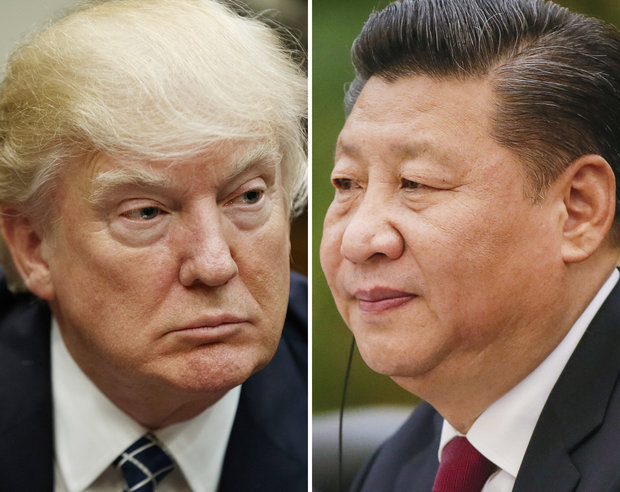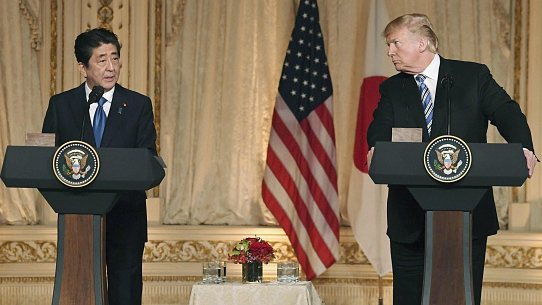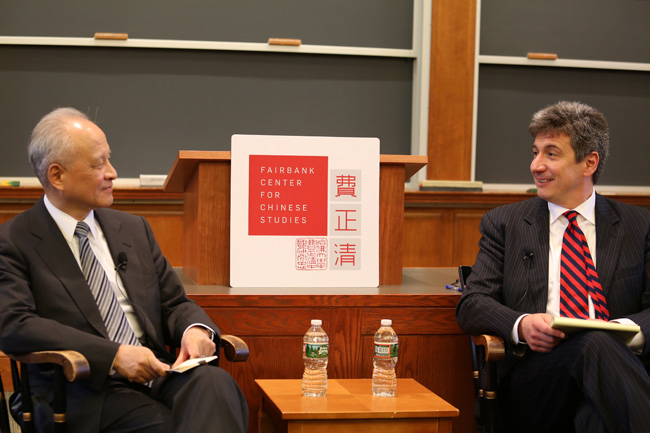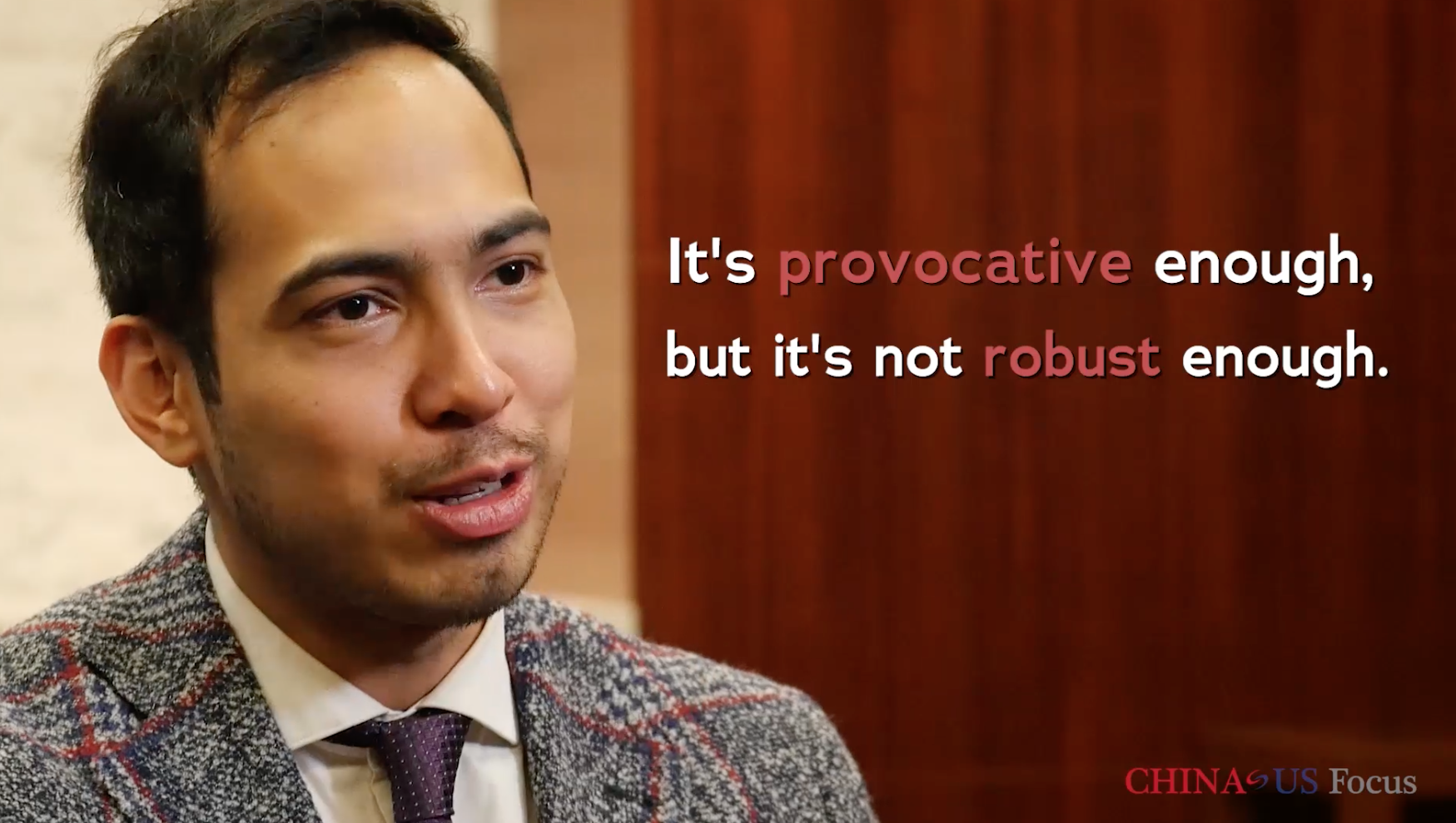
 China and the U.S. Seek Allies in Trade Dispute
China and the U.S. Seek Allies in Trade DisputeChina and the United States are potentially looking to recruit allies to stand with them in the ongoing trade battle. As trade tensions ramped up, China's international trade representative, Fu Ziying, held a series of meetings late last week with major European countries in an effort to create a "trade firewall" against the United States. The flurry of meetings included audiences with representatives from France, Germany, the United Kingdom, Spain, Italy, and the European Union, and may reflect a desire on China's part to position itself as the defender of multilateralism, holding the moral high ground against the U.S. and President Trump's "America First" protectionism.
China's trade relationship with Europe is complicated. While the European Union is one of China's top trading partners, relations in recent years have not always been smooth, in part because of trade deficits between European countries and China. For example, as China-US Focus contributor Feng Zhongping explained in an article, "France and some European countries are unhappy about their big trade deficit with China, urging a quick solution. According to statistics from the EU side, trade during the first 11 months of 2017 was 523.3 billion euro, with China enjoying a 161.9 billion euro surplus. Many European countries urged China to give them 'equal openness' in market accessibility."
In recent weeks, Chinese officials have made it clear that the country does not intend to back down from U.S. trade blows, such as the U.S. government's decision this week to ban Chinese tech company ZTE from buying American technology. In fact, Gao Feng, a spokesman of China's Ministry of Commerce, stated at a media briefing in Beijing this week that, "the U.S. would be making a miscalculation if it is determined to contain China's rise."
Competition between China and the U.S. for the support of other countries in trade disputes is expected to continue at the semi-annual meetings of the International Monetary Fund in Washington D.C. at the end of this week. The news that there have still been no bilateral talks over trade frictions between China and the U.S., as well as these attempts at coalition-building, suggest that both countries are preparing for a protracted standoff over trade.
 "It's a time for talking" on North Korea
"It's a time for talking" on North KoreaJapanese Prime Minister Shinzo Abe met with President Trump this week at the American president's Mar-a-Lago estate in Florida. The meeting was reportedly initiated by Abe just days after hearing about President Trump's plans to meet with North Korean leader Kim Jong Un in an unprecedented summit this summer. China-US Focus contributor Mel Gurtov wrote in an article that Abe had been "diplomatically isolated by Trump's decision to hold a summit meeting with Kim." As well as raising the topics of Japan-U.S. trade and cooperation in the Indo Pacific, the Japanese prime minister also asked President Trump for his cooperation on North Korea, specifically in raising the issue of Japanese abductees held in the country in talks with Kim.
"It's a time for talking, it's a time for solving problems," President Trump said to reporters after his meeting with Abe. "Japan and ourselves are locked, and we are very unified on the subject of North Korea."
On Tuesday, the news leaked that President Trump's choice for Secretary of State, Mike Pompeo— who has not yet been confirmed by the Senate— visited Pyongyang over the Easter weekend to help prepare for the upcoming summit. Important details of the meeting, including the location, are yet to be publicly announced. Peter Bittner wrote in an article for China-US Focus this week that Mongolia is one of the locations under consideration. "Crucially, Mongolia is one of the few countries that both the U.S. and North Korea can trust," Bittner wrote. Ulaanbaatar, Mongolia's capital, is home to embassies of both the United States and the DPRK, as Bittner notes. The country has had diplomatic relations with North Korea since 1948.
On Wednesday, CNN reported that Chinese President Xi Jinping is also preparing to visit Pyongyang, most likely after the Trump-Kim summit. This would be his first official visit to North Korea since he came to power in 2012. While preparations are underway for several diplomatic engagements with North Korea, the major countries involved— China, the U.S., South Korea and Japan— have not come to an agreement on policy preferences, including a possible peace treaty, verification processes and what denuclearization actually means. Despite this, hopes are high in the international community for progress on the issue. Speaking to reporters, President Trump said that he would "respectfully leave the meeting" with Kim if it was "not fruitful."
Writing about the topic this week, China-US Focus contributor Wu Zurong argued, "Denuclearizing the Korean Peninsula cannot be fulfilled in weeks or months. Though the present situation has improved, it is still fragile and delicate."
 Cui Tiankai Discusses China-U.S. Relations in a Speech at Harvard
Cui Tiankai Discusses China-U.S. Relations in a Speech at HarvardCui Tiankai, the Chinese Ambassador to the U.S., discussed the current state of China-U.S. relations in a speech at Harvard University's Fairbank Center for Chinese Studies this week. Despite ongoing tensions between the two countries over trade, he dedicated the majority of his speech not to this topic, but to a discussion of what he characterized as the many "confusions" over substantive issues in the bilateral relationship, including China's intentions, political development and future direction. He said that this "understanding deficit" between China and the United States threatened to undermine cooperation between the world's two largest economies on pressing international issues, such as North Korea. "Although some people want to make trade deficit a big issue, the understanding deficit is more significant," Cui said.
Referring to recent U.S. policy documents that branded China a "revisionist power," the ambassador called this a "gross misinterpretation of China's intention" and highlighted China's "very strong track record" of compliance with UN principles. Cui also provided an explanation of President Xi's speeches at the 19th Party Congress and Boao Forum, touching on China's opening up process, centenary goals, and perceived place within the international system. "It is about a proud and great nation to reemerge in the global center stage, not to challenge or replace anyone, but to embrace the world," he said.
Cui concluded his speech by expressing his desire for China and the U.S. to "hit refresh" and reverse an emerging trend in relations which threatened to decrease, rather than increase, mutual understanding. This trend, he said, could result in the two countries becoming "suspicious and fearful" of engaging with each other. Posing a question to the audience, Cui ended his speech by saying: "What I learned in the U.S. has changed my life, my work and my perception of the world to a great extent. And the influence has been quite positive. But more recently, I feel a little bit puzzled and confused. I ask myself, is the America I used to know – an open, confident, optimistic America – still there?"
 Exclusive Interview: The U.S.' Role in the South China Sea
Exclusive Interview: The U.S.' Role in the South China SeaThe U.S.' role in the South China Sea disputes is the subject of a new China-US Focus interview with Manila-based academic and author Richard Heydarian, released this week. The author of Asia's New Battlefield: U.S., China, and the Struggle for Western Pacific, Heydarian is an expert on the Asia-Pacific region and the evolving relationships between China, the U.S., and claimant states in the South China Sea. In this exclusive interview, he discusses the pressure the United States faces to act in the ongoing disputes, while avoiding accusations that it is attempting to interfere in a regional dispute in a ploy to contain China. Watch the interview here.
Prepared by China-US Focus editorial teams in Hong Kong and New York, this weekly newsletter offers you snap shots of latest trends and developments emerging from China every week, while adding a dose of historical perspective.
- 2018-04-13 President Xi Reviews the PLA Navy
- 2018-04-06 China and Russia Pledge Military Cooperation in a Signal to the United States
- 2018-03-30 Kim Jong Un Visits Beijing on First Overseas Visit
- 2018-03-23 President Trump Asks for Tariffs on Around $50 Billion Worth of Chinese Imports
- 2018-03-16 Tillerson to be Replaced by Mike Pompeo as Secretary of State
- 2018-03-09 President Trump Agrees to Meet Kim Jong-Un
- 2018-03-02 U.S. Imposes Tariffs on Chinese Aluminum
- 2018-02-23 A Week of Developments Related to North Korea
- 2018-02-16 Cui Tiankai says U.S. Should Not Advocate Confrontational Strategy Towards China
- 2018-02-09 China Releases the “No.1 Central Document” Containing New Rural Policies
- 2018-02-02 Wang Qishan Appointed to the National Legislature
- 2018-01-26 New Edition of the Focus Digest
- 2018-01-19 South Korea and North Korea to Compete Together at the Winter Olympics
- 2018-01-12 U.S. House of Representatives Passes Taiwan Bills
- 2018-01-05 U.S. Rejects Sale of Moneygram to China’s Ant Financial
- 2017-12-22 Trump’s National Security Strategy Labels China a “Revisionist Power”
- 2017-12-15 White House and Secretary of State contradict each other on North Korea talks
- 2017-12-08 China Boasts its Technology Chops at the 4th Annual World Internet Conference
- 2017-12-01 The Future of the China-US Economic Relationship
